Co-design Urban organic waste solutions
Part of
Keywords
The purpose of this workshop is to bring together stakeholders (policymakers, industry, NGO's and scientists) from different backgrounds to discuss how to improve quantity and quality of urban organic waste and how to valorize the collected material in Cities (where Amsterdam is taken as example). The workshop is designed as an interactive dialogue with a short input presentations on the technical, governance and behavioral perspective of urban organic waste.
This workshop was moderated by Willie van den Broek, Joana Wensing and Carlo Verhardt.
The first part of the workshop consisted of pitches from 18 (research) projects. These projects ranged from extracting inks and dyes from used coffee grounds and producing 3D printing material from organic waste to edible insects and researching the political side of organic waste and so on. The aims were to provide an overview of initiatives and research on the subject of organic waste and to give stakeholders the opportunity to connect with each other.
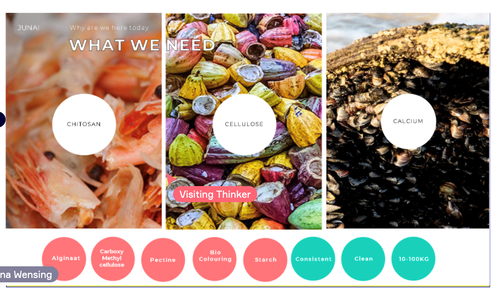
Photo 1 - Reflow - organic 3D printing materials
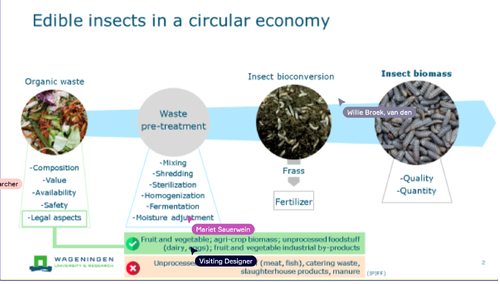
Photo 2 - Dr. Maryia Mishyna - Edible insects for food and feed
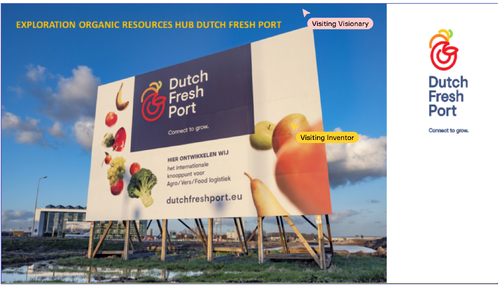
Photo 3 - Dutch Fresh Port - cluster of agribusiness, food and fresh logistics
The following people have pitched their project:
- Marten de Vries – Province of North Holland
- Diederik Starreveld – City of Amsterdam
- Xuezhen Guo – Wageningen Food and Biobased Research
- Marta Rogriguez Illera - Wageningen Food and Biobased Research
- Marloes Ruis - Witteveen & Bos
- Monalisa Goswami - Spark 904
- Jasper Middendorp - Reflow
- Jan Vreeburg - KWR
- Johan van Groenestijn - Wageningen Food and Biobased Research
- Miriam van Eekert – Wageningen University – Environmental Technology (WU-ETE)
- Wei-Shan Chen - Wageningen University – Environmental Technology (WU-ETE)
- Shiju Raveendran - Universiteit van Amsterdam
- Maryia Mishina – Wageningen University – Food Quality and Design (WU-FQD)
- Erica van Herpen – Wageningen University - UEC
- Daniel Polman – Wageningen University - SSG
- Hellen Elissen – Wageningen University
- Maxim Amosov - Organic Village
- Yannick Schrik – WUR/HvA
The second part of the workshop was an interactive session intended to gain structured insight into the subject. This involved looking at different 'key waste streams' and which types of waste belong in these categories. Subsequently, we looked at the 'key needs' related to the aforementioned 'waste streams' from different perspectives (technology, policy, economy, social, etcetera). Some examples are the process of waste separation, cooperation, start-up funding, information provision/education and infrastructure. Next, a brief brainstorming session was held about 'key solutions' and a follow-up session was planned in which the results of the workshop are summarized and discussed.
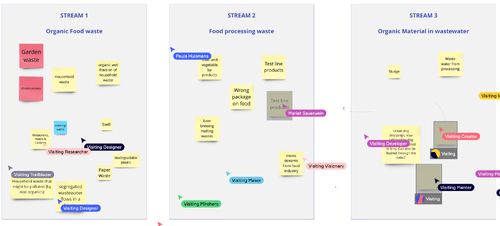
Photo 4 - Key waste streams
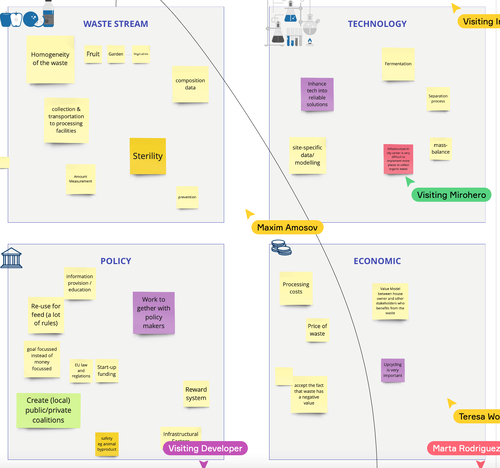
Photo 5 - Key needs
Image credits
Icon image: Organic waste_Pixabay.png